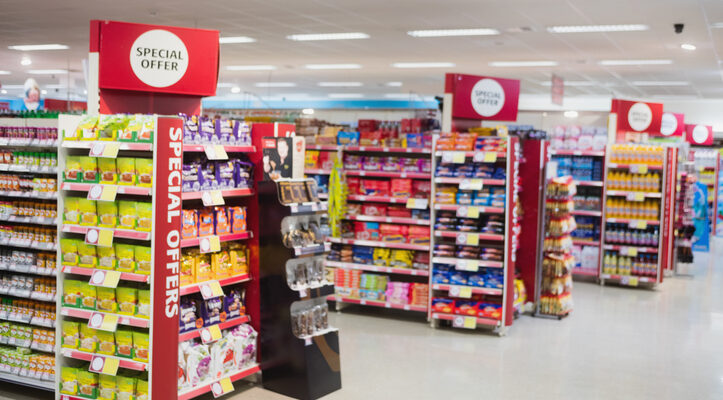Showing results for: “premium natural and organic”
Waking up to Platform Regulation
Brrring! “Gee, this iPhone alarm is the worst—I should really change that sometime. Let’s see what’s in my calendar for today…” In accordance with new regulatory requirements, Apple is providing you with a choice of app stores. Please select an option from the menu below. Going forward, iOS applications will download via the selected store ... Waking up to Platform Regulation
Antitrust Populists Don’t Seem to Care About the Poor
Antitrust populists like Biden White House official Tim Wu and author Matt Stoller decry the political influence of large firms. But instead of advocating for policies that tackle this political influence directly, they seek reforms to antitrust enforcement that aim to limit the economic advantages of these firms, believing that will translate into political enfeeblement. ... Antitrust Populists Don’t Seem to Care About the Poor
Patent Eligibility, Competition, Innovation, Congress, and the Supreme Court
A highly competitive economy is characterized by strong, legally respected property rights. A failure to afford legal protection to certain types of property will reduce individual incentives to participate in market transactions, thereby reducing the effectiveness of market competition. As the great economist Armen Alchian put it, “[w]ell-defined and well-protected property rights replace competition by ... Patent Eligibility, Competition, Innovation, Congress, and the Supreme Court
Why FTC Competition Rulemaking Likely Will Fail
I. Introduction In over a century of existence, the U.S. Federal Trade Commission (FTC) has been a policy leader in developing American thinking about and in enforcing antitrust and consumer protection laws pursuant to several specific statutory mandates. It has also promulgated a substantial number of consumer protection rules, dealing with a wide variety of practices. ... Why FTC Competition Rulemaking Likely Will Fail
The Market Challenge to Populist Antitrust
The wave of populist antitrust that has been embraced by regulators and legislators in the United States, United Kingdom, European Union, and other jurisdictions rests on the assumption that currently dominant platforms occupy entrenched positions that only government intervention can dislodge. Following this view, Facebook will forever dominate social networking, Amazon will forever dominate cloud ... The Market Challenge to Populist Antitrust
Making Rules vs Ruling
In an effort to fight inflation, the Federal Open Market Committee raised interest rates to 20% over the course of 1980 and 1981, triggering a recession that threw more than 4 million Americans, many in well-paying manufacturing jobs, out of work. As it continues to do today, the committee met in secret and explained its ... Making Rules vs Ruling
Concentration Study Further Undermines Narrative that US Competition Has Sharply Declined
A new scholarly study of economic concentration sheds further light on the flawed nature of the Neo-Brandeisian claim that the United States has a serious “competition problem” due to decades of increasing concentration and ineffective antitrust enforcement (see here and here, for example). In a recent article, economist Yueran Ma—assistant professor at the University of ... Concentration Study Further Undermines Narrative that US Competition Has Sharply Declined
The Paradox of Choice Meets the Information Age
Barry Schwartz’s seminal work “The Paradox of Choice” has received substantial attention since its publication nearly 20 years ago. In it, Schwartz argued that, faced with an ever-increasing plethora of products to choose from, consumers often feel overwhelmed and seek to limit the number of choices they must make. In today’s online digital economy, a ... The Paradox of Choice Meets the Information Age
Attention Markets: They Know Them When they See Them
A raft of progressive scholars in recent years have argued that antitrust law remains blind to the emergence of so-called “attention markets,” in which firms compete by converting user attention into advertising revenue. This blindness, the scholars argue, has caused antitrust enforcers to clear harmful mergers in these industries. It certainly appears the argument is ... Attention Markets: They Know Them When they See Them
FTC-DOJ RFI on Merger Guidelines: The Agencies Should Proceed with Caution
The Jan. 18 Request for Information on Merger Enforcement (RFI)—issued jointly by the Federal Trade Commission (FTC) and the U.S. Justice Department (DOJ)—sets forth 91 sets of questions (subsumed under 15 headings) that provide ample opportunity for public comment on a large range of topics. Before chasing down individual analytic rabbit holes related to specific ... FTC-DOJ RFI on Merger Guidelines: The Agencies Should Proceed with Caution
Political Philosophy, Competition, and Competition Law: The Road to and from Neoliberalism, Part 2
In just over a century since its dawn, liberalism had reshaped much of the world along the lines of individualism, free markets, private property, contract, trade, and competition. A modest laissez-faire political philosophy that had begun to germinate in the minds of French Physiocrats in the early 18th century had, scarcely 150 years later, inspired ... Political Philosophy, Competition, and Competition Law: The Road to and from Neoliberalism, Part 2
10 Things the American Innovation and Choice Online Act Gets Wrong
The Senate Judiciary Committee is set to debate S. 2992, the American Innovation and Choice Online Act (or AICOA) during a markup session Thursday. If passed into law, the bill would force online platforms to treat rivals’ services as they would their own, while ensuring their platforms interoperate seamlessly. The bill marks the culmination of ... 10 Things the American Innovation and Choice Online Act Gets Wrong















